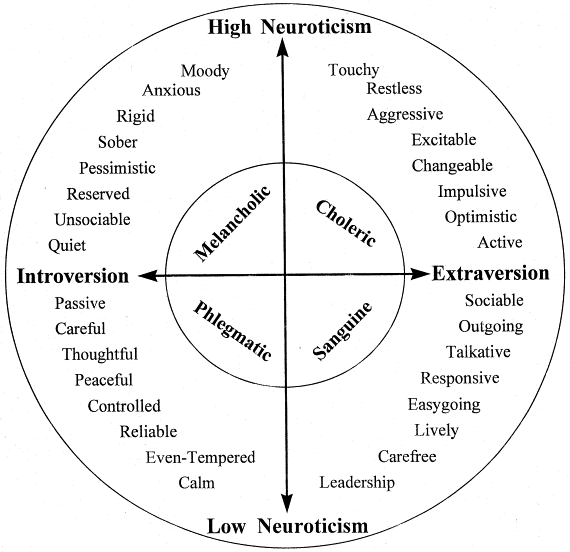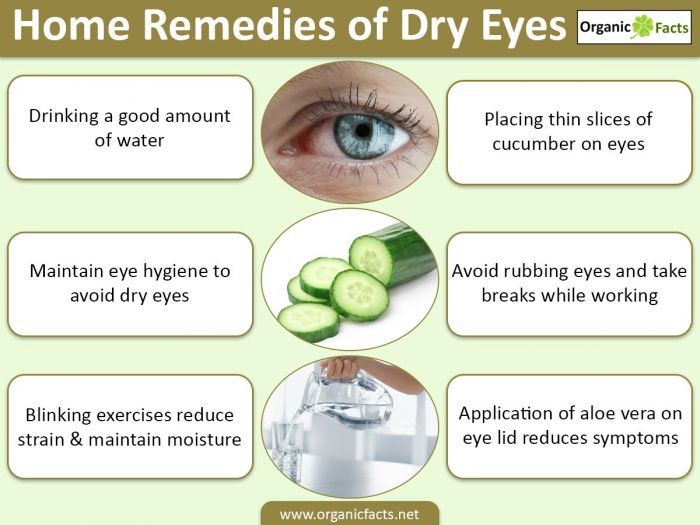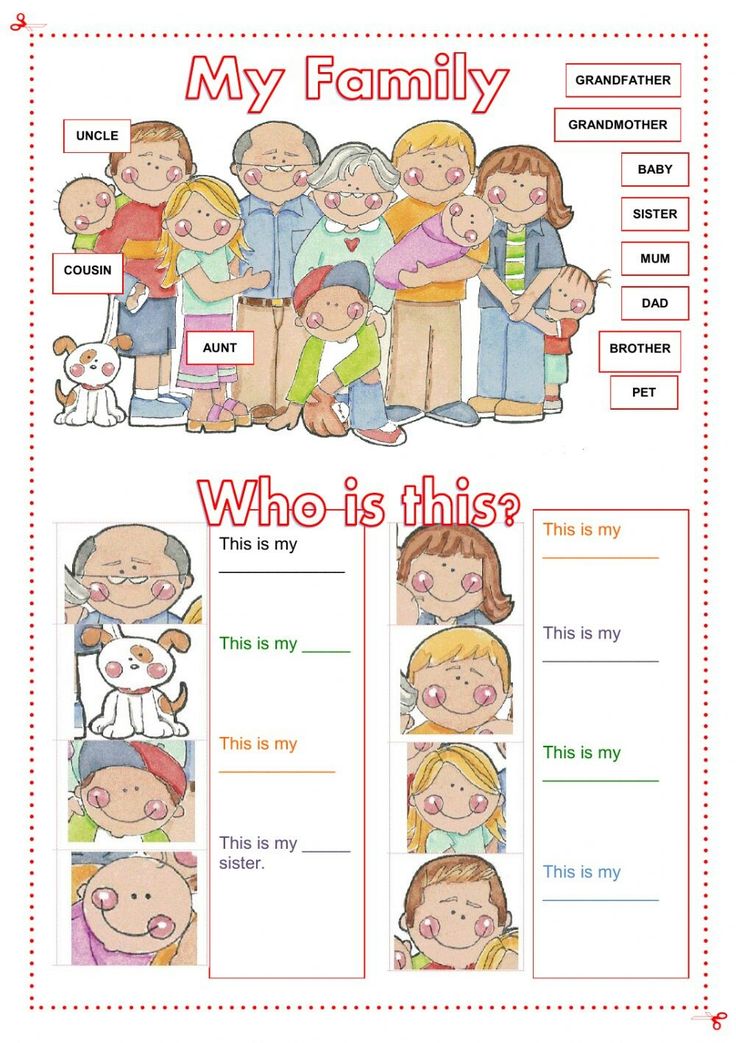Self care comes first
Self-Care – Put yourself First
“If I am not for myself, then who will be for me? And if I am only for myself, then what am I? And if not now, WHEN?” -Hillel
I love this quote by Hillel. This is the epitome of self-care. This says to me, I must be responsible for my life because, even though I have people in my life who love and care for me, I am the only person living in my body, living my own precious life. Self-care may sometimes sound like a selfish thing – taking care of myself first – but it is an act of love. As I love and take care of myself, I can better love and care for others. Finally, the question of WHEN – WHEN will it be a good time to start? WHEN is the right time to make changes in your life. This is not a question. WHEN is now! It is never too late to start loving yourself enough to take good care of yourself.
This is what we refer to as our WHEN Way of Life – living the best life we can. Self-care is the foundation to take care of ourselves, then others.
As women, we are taught and encouraged to put others ahead of ourselves. We take care of our spouses, our children, our parents, our homes, our jobs and businesses. The last thing on the list is usually us. We never seem to get to the last item on the list. As they say on every flight, “put your oxygen mask on first, then help others around you”. Is there truly a way to put ourselves first, front and center in our lives? Can we love ourselves enough to move ourselves from last to first? Some of us have done this!
Others are still searching…
We can certainly care for our families and help others, yet we still need to take care of ourselves first. This comes down to the concept of SELF-CARE which is really about loving ourselves. How do we take care of ourselves so we have the energy and well-being to help others, to run our businesses, grow our families and be our best selves?
What is self-care? It is different for every single person on this planet. It is personal. It is what you do for yourself every day. Yes, daily. Things like brushing your teeth, washing your face before bed, sleeping deeply, eating well, creating healthy relationships, resting, exercising, engaging in family and community time, and having fun. It can be as simple as emptying the dishwasher as soon as possible so it’s ready for the next dirty dishes. It also means setting boundaries and doing what is yours to do and not over reaching into someone else’s territory or allowing someone to reach into yours.
It is personal. It is what you do for yourself every day. Yes, daily. Things like brushing your teeth, washing your face before bed, sleeping deeply, eating well, creating healthy relationships, resting, exercising, engaging in family and community time, and having fun. It can be as simple as emptying the dishwasher as soon as possible so it’s ready for the next dirty dishes. It also means setting boundaries and doing what is yours to do and not over reaching into someone else’s territory or allowing someone to reach into yours.
Imagine the message your own self-care sends to your children, your spouse, your family and friends. It means there are boundaries – things you will accept and things that just won’t fly. You can be an example for younger women who need permission to step up and live their lives. Today’s times are different and self-care should lead in your thinking and doing.
WHEN you engage in your WHEN Way of Life, you can achieve anything you want.
What gets in the way of taking good care of ourselves? It is usually stress. Stress from work, family, finances, friends and so much more. We all have it!
Stress from work, family, finances, friends and so much more. We all have it!
We all know that stress has become unmanageable for us these days. Stress comes from doing too much, being overwhelmed with deadlines, financial issues, health, politics and all the violence – from what might be happening at home to shootings to all the hate vitriol. It comes from worry, fear, grief, sadness and anger. We can’t completely eliminate stress from our lives, nor do we want to. We need some stress in our lives to move us forward but we need a way to “come down” from it. When we were being chased by sabretooth tigers, we went into “fight or flight” mode and ran like the dickens. When the threat passed, we came back to our normal daily life, able to rest, eat and digest our food and carry on with life. The problem now in modern life is that we are almost always in fight or flight – we don’t seem to be able to stop and rest, bring our stress hormones back to normal.
The nice thing is that it is never too late to make a change to take care of yourself.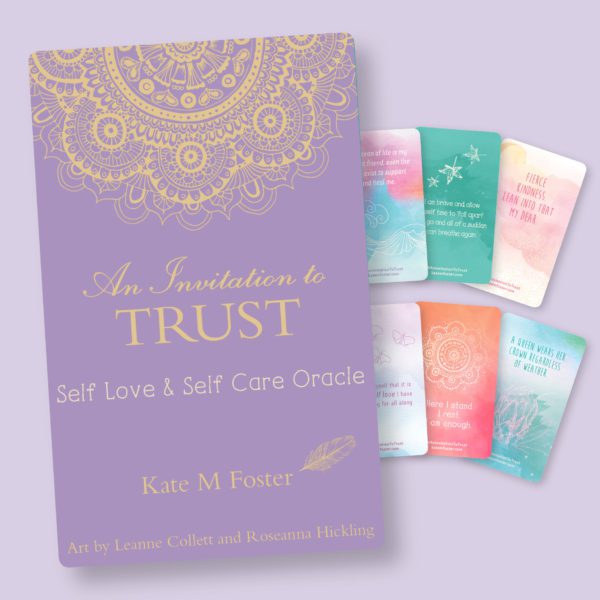 So, how do we modify our self-care to support us? Here are some suggestions to consider in changing your self-care routine.
So, how do we modify our self-care to support us? Here are some suggestions to consider in changing your self-care routine.
1. Look at what and how you are eating. Eating healthy foods in moderation in a relaxed way can give you the energy you need to feel great and do what you have to do. How can you incorporate healthy food into your daily life? Making simple meals ahead and storing in the fridge means you can grab something quick for lunch or when you come home for dinner. Same with lunches and dinners for families on the go. It does take some planning and careful grocery shopping to make simple, whole food meals. There are so many new pieces of cooking equipment out there that can make the cook time quick. Sit at a table, give thanks and take a couple deep breathes. Eat with family and if you are single, light a candle, put on some soft music and enjoy your meal. Consider putting all the phones away during meal times.
2. Get your hormones checked. Many women suffer from hormone imbalances that cause weight gain, weepy feelings, depression, and irritability. Once balanced, you can get to the bottom of what else may be going on that is taking your energy away.
Once balanced, you can get to the bottom of what else may be going on that is taking your energy away.
3. Exercise and stretch to stay strong, healthy, flexible and balanced. Our bodies were made to move regularly, not sit or stand for hours on end. A simple 20- minute walk not only gets you moving, it also helps clear your mind. It’s not necessarily about weight loss or trying to fit into a dress for a special occasion. It’s about making a lifelong commitment to your heart, your muscles, your brain and your whole body to stay as healthy and active as you can, right to the end of your days.
4. Most of us have some pain in our lives, physical and emotional. Sometimes that pain is acute and can be healed quickly. Many of us deal with deep, chronic pain. Emotional pain is something we don’t think about much. Emotional pain can come from the past when you were a child. It could be something really terrible that happened or a misunderstanding in a child’s mind. These emotional traumas can cause physical and mental illness.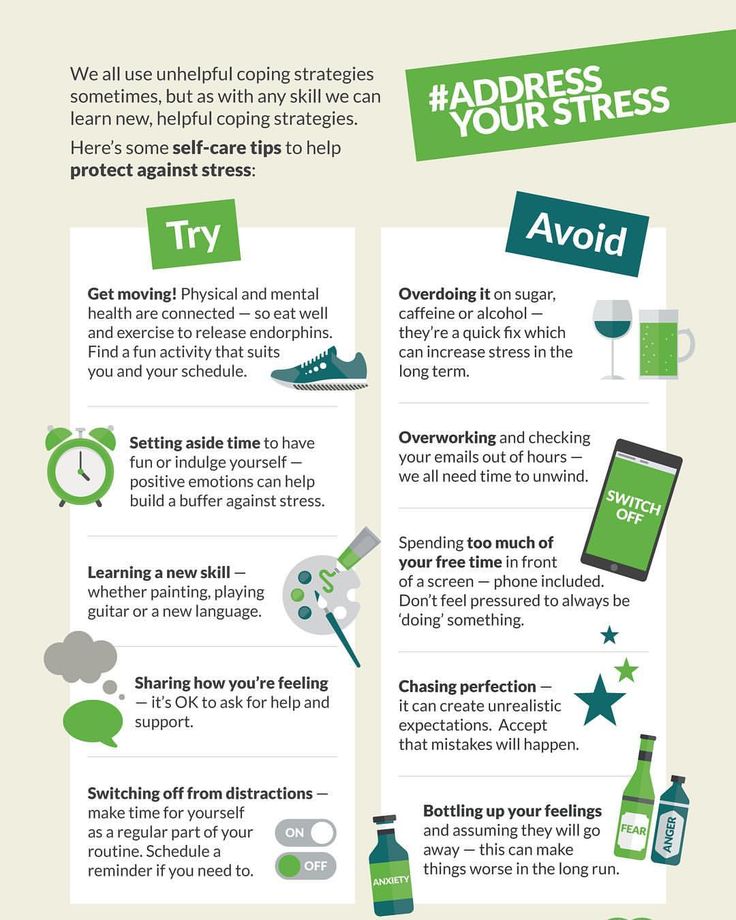 Our bodies have tremendous wisdom and when we feel pain, our bodies are trying to let us know that something is wrong. Take the time to pull back a little, rest and figure out what your body is trying to tell you. Working with a licensed therapist, one you resonate with and feel comfortable with, can really help dig out these old injuries.
Our bodies have tremendous wisdom and when we feel pain, our bodies are trying to let us know that something is wrong. Take the time to pull back a little, rest and figure out what your body is trying to tell you. Working with a licensed therapist, one you resonate with and feel comfortable with, can really help dig out these old injuries.
5. Speak gently and lovingly to yourself. Use kind words that uplift you. We often have a running dialogue in our minds about not being enough. Think about what you tell yourself now. Would you say these same things to a child or a pet or a loved one? You can change this conversation by telling yourself great and positive things about yourself.
6. Buy clothes that fit, that are the right colors for you and that make you feel beautiful. You don’t need a closet full of clothes, just good quality, timeless pieces that you feel fabulous in. When you look good, you feel good.
7. Commit to having fun in your life. When asked, most people say they don’t do anything for fun. Life is not about all work and no play. It is meant to be enjoyed to the best of our ability.
Life is not about all work and no play. It is meant to be enjoyed to the best of our ability.
8. Have some sort of spiritual practice, whether it is organized religion or simply a Thank you spoken every day for all the gifts you receive. Consider meditation, mindful breathing, journaling, reading books and articles that uplift you.
9. Do your best to be in nature as often as possible. Mother Nature has amazing healing properties. Let her help you rest, relax and take you away from the daily grind.
It is never too late to develop good habits that lead to excellent self-care and incredible self-love. We all deserve a good quality of life and now is the time to make it happen. Some of us can do this work on our own and others may need a push or some one-on-one guidance to help motivate us. This is your WHEN way of life – your opportunity to create your life with passion and compassion for yourself. WHEN you do this, you will bring joy and love to yourself and others.
Living a When Way of Life and honoring my own self-care and well-being.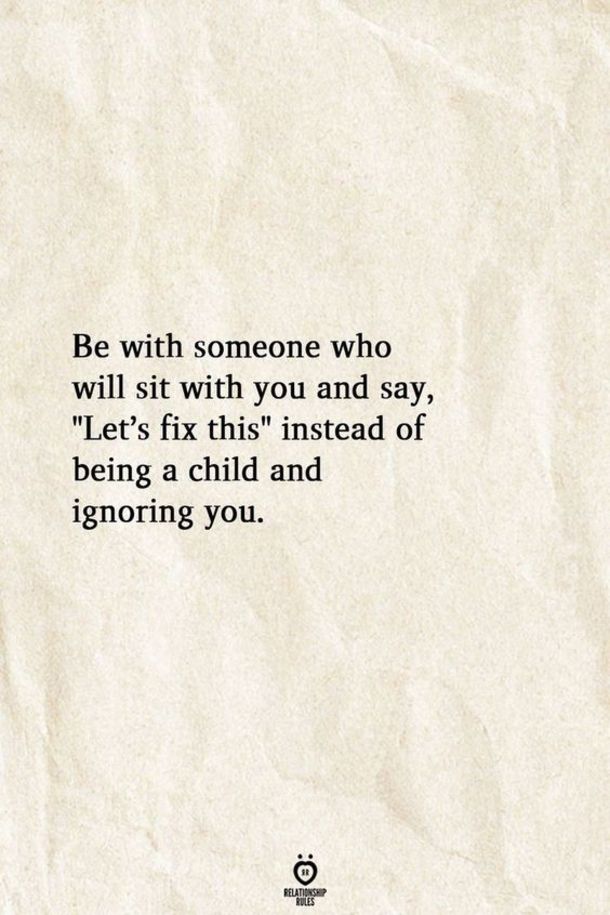
Dr. Elaine Stewart, ND
Chief Health Officer
What Is Self-Care and Why Is It Critical for Your Health?
By Moira LawlerMedically Reviewed by Justin Laube, MD
Reviewed:
Medically Reviewed
Let’s clear up one common misconception from the get-go: Self-care is not synonymous with self-indulgence or being selfish. Self-care means taking care of yourself so that you can be healthy, you can be well, you can do your job, you can help and care for others, and you can do all the things you need to and want to accomplish in a day.
If you think you’ve been hearing more about self-care now, you’re right. One indicator: According to Google Trends, the number of searches for “self-care” has more than doubled since 2015.
Paula Gill Lopez, PhD, an associate professor and chair of the department of psychological and educational consultation at Fairfield University in Fairfield, Connecticut, says the need for self-care is obvious.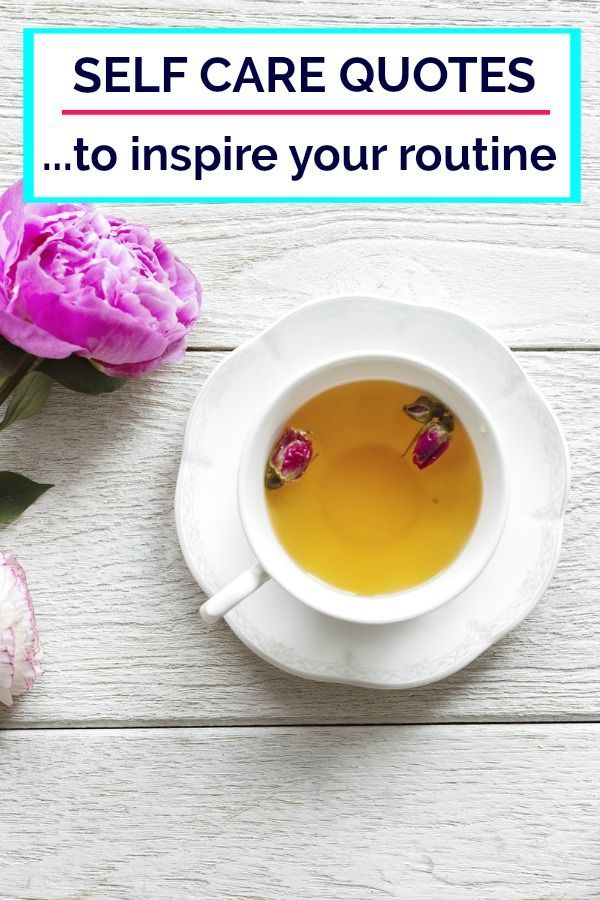 “We have an epidemic of anxiety and depression,” she says. “Everybody feels it.”
“We have an epidemic of anxiety and depression,” she says. “Everybody feels it.”
Self-care is part of the answer to how we can all better cope with daily stressors, explains Kelsey Patel, a Los Angeles–based wellness expert and the author of the forthcoming book Burning Bright: Rituals, Reiki, and Self-Care to Heal Burnout, Anxiety, and Stress. It’s work stress. It’s the stress of trying to keep up with the pace of daily life, which technology has hastened more than ever (just think how many emails come flooding into your inbox each day). “People are feeling lonelier and less able to unwind and slow down, which makes them feel more anxious and overwhelmed by even the simplest tasks,” Patel says.
RELATED: A Guide to Understanding Stress — Including How to Manage It
At Everyday Health, self-care is taking steps to tend to your physical and emotional health needs to the best of your ability.
Here, we explore the trend, where the definition of self-care comes from, and what it can do for your long-term health.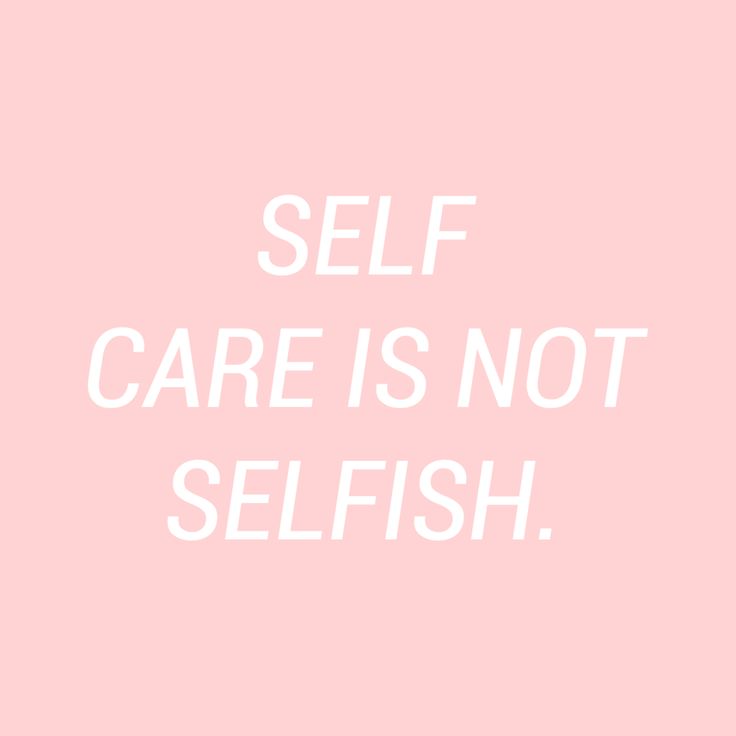
What Is Self-Care, and Why Is It Critical for Your Well-Being?
Several organizations and researchers take a health-oriented approach when defining self-care. The World Health Organization defines self-care as: “the ability of individuals, families, and communities to promote health, prevent disease, maintain health, and to cope with illness and disability with or without the support of a healthcare provider.”
According to this definition, self-care includes everything related to staying physically healthy — including hygiene, nutrition, and seeking medical care when needed. It’s all the steps an individual can take to manage stressors in his or her life and take care of his or her own health and well-being.
RELATED: Wellness and Self-Care During Radical Movements
What Is Self-Care?
Common Questions & Answers
What are the benefits of practicing self-care?
Self-care is anything you do to take care of yourself so you can stay physically, mentally, and emotionally well. Its benefits are better physical, mental, and emotional health and well-being. Research suggests self-care promotes positive health outcomes, such as fostering resilience, living longer, and becoming better equipped to manage stress.
Its benefits are better physical, mental, and emotional health and well-being. Research suggests self-care promotes positive health outcomes, such as fostering resilience, living longer, and becoming better equipped to manage stress.
Can self-care help prevent disease or illness?
While self-care can help prevent future health problems, it alone is not a cure or treatment for disease or illness. For those living with a chronic disease (such as heart disease or cancer), however, practicing self-care may help patients with managing symptoms, bolstering other aspects of health, and improving emotional well-being.
What are some examples of self-care?
Common examples of self-care include: maintaining a regular sleeping routine, eating healthy, spending time in nature, doing a hobby you enjoy, and expressing gratitude. Self-care can look different for everyone, but to count as self-care, the behavior should promote health and happiness for you.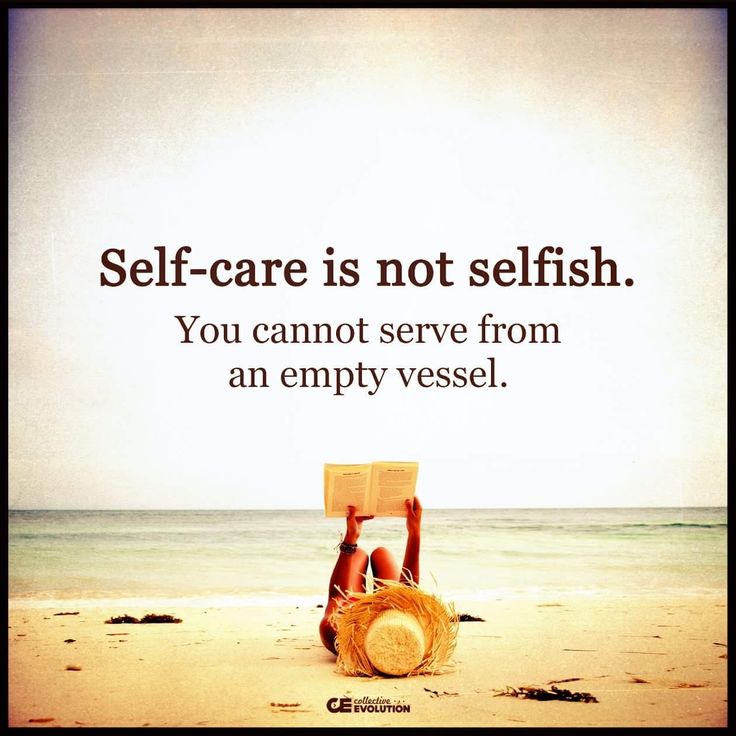
How do I start a self-care routine?
To get into a routine of regularly practicing self-care, experts recommend starting small rather than tackling the most challenging thing first. Choose one practice each week to weave into your daily routine. Note any positive changes, and add in more practices when you feel ready.
Some researchers have adopted a similarly clinical approach. A 2010 study published in JBI Library of Systematic Reviews defined self-care as "the set of activities in which one engages throughout life on a daily basis,” focusing on promoting health, preventing illness, and managing issues that come up.
A study published in BMC Palliative Care in April 2018 took self-care to mean “the self-initiated behavior that people choose to incorporate to promote good health and general well-being.” The study authors added that it’s about being healthy but also about incorporating coping strategies to deal with work stressors.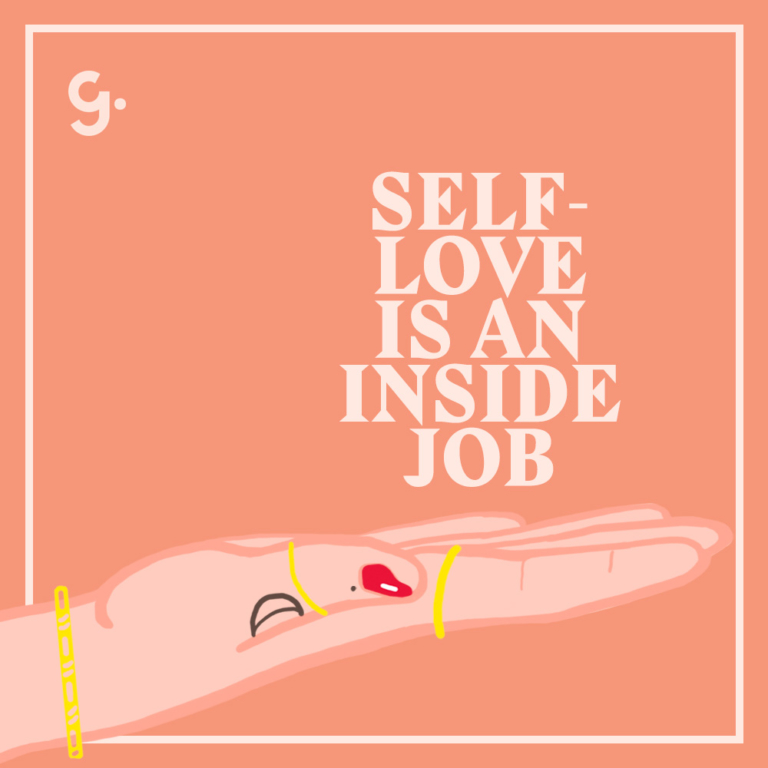
In 2019 researchers published a self-care framework in The BMJ to specifically point out that in addition to self-care being the activities individuals do on their own to promote physical and emotional health, it also includes the ways that individuals interact with clinicians and healthcare systems to tend to physical and emotional health. That means self-care includes things like getting a vaccine, scheduling cancer screenings, or taking prescription medications on schedule — but healthcare providers and organizations play a role, too, in how well individuals engage in these self-care practices. In other words: There are a lot of people and factors that bear on any one individual’s ability to engage in self-care.
As self-care has become more mainstream, the definitions have started to become more applicable to the general public and tend to focus on tuning in to one’s needs and meeting those needs. “Self-care is anything that you do for yourself that feels nourishing,” says Marni Amsellem, PhD, a licensed psychologist based in Trumbull, Connecticut.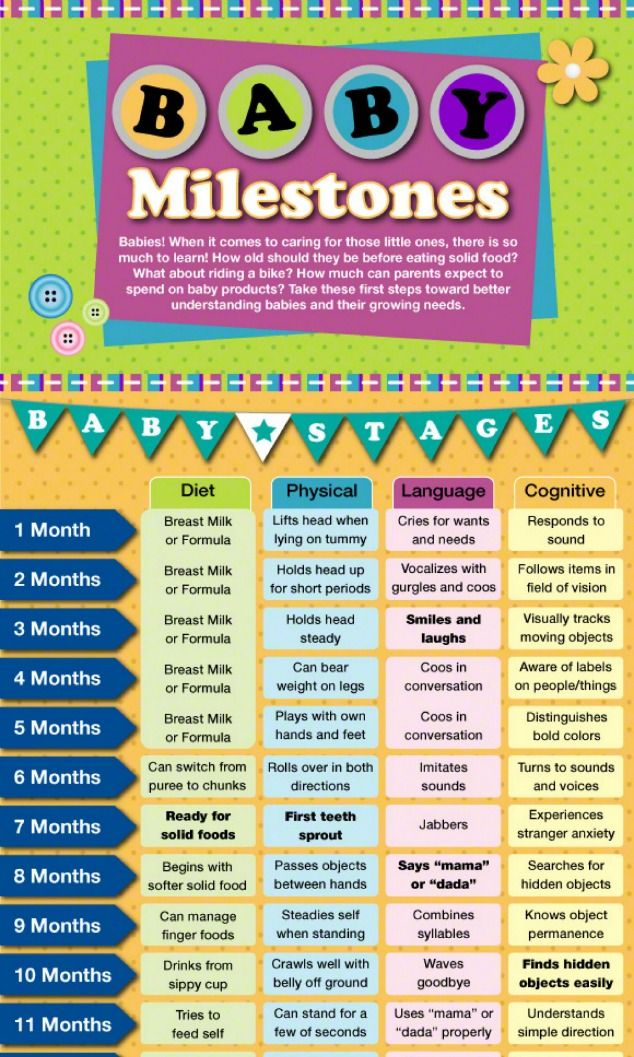
“That can be something that’s relaxing or calming, or it can be something that is intellectual or spiritual or physical or practical or something you need to get done,” she says.
The International Self-Care Foundation also includes health literacy as a pillar of self-care, meaning that any steps you take toward better understanding health information you need to make appropriate decisions about your health and well-being counts as self-care, too.
This is why at Everyday Health, self-care is all the steps you take to tend to your physical and emotional health in the ways you are best able to do so.
Self-care requires checking in with yourself and asking yourself how you’re doing and what your body’s asking for. Some people use it to deal with difficult news stories, others just to maintain their happiness day to day. Self-care does not mean the same thing for everyone. Different people will adopt different self-care practices, and even your own definition might change over time.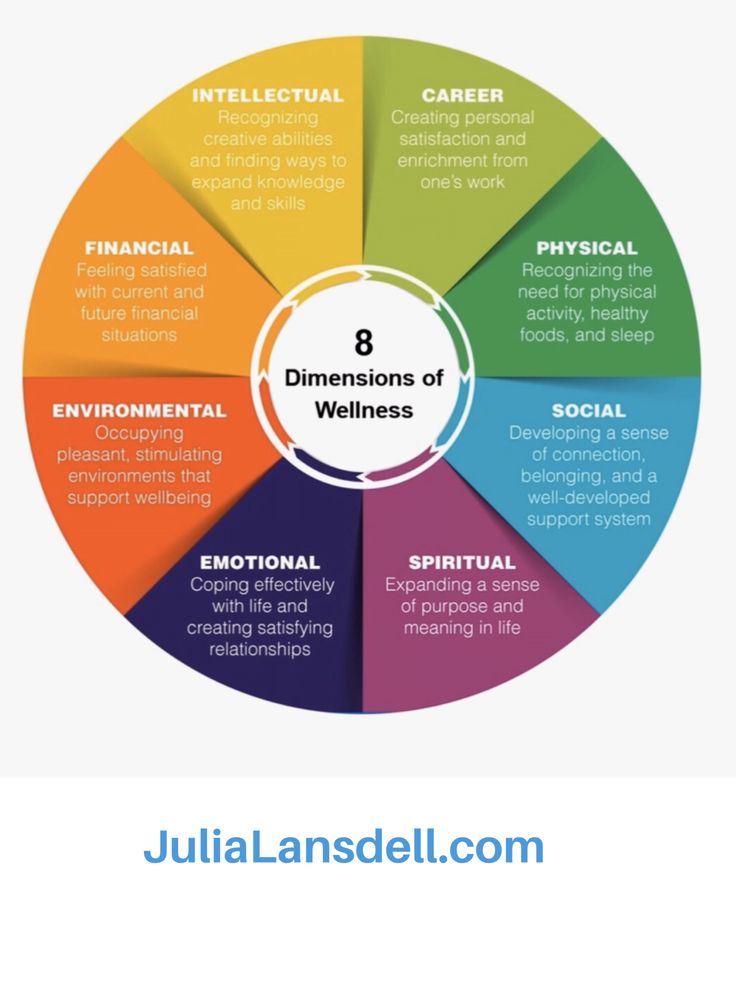 “What is self-care for one person will likely differ from someone else, and what’s self-care for you one day might not feel like self-care another day,” Dr. Amsellem says.
“What is self-care for one person will likely differ from someone else, and what’s self-care for you one day might not feel like self-care another day,” Dr. Amsellem says.
Engaging in self-care regularly could help you put your best foot forward. “When we are regularly taking care of ourselves, we are better able to react to the things that go on in our lives,” Amsellem says. “It’s something we do to maintain positive well-being.”
“When self-care is regularly practiced, the benefits are broad and have even been linked to positive health outcomes such as reduced stress, improved immune system, increased productivity, and higher self-esteem,” says Brighid Courtney, of Boston, a client leader at the wellness technology company Wellable and a faculty member at the Wellness Council of America (WELCOA).
RELATED: 9 Essential Skills That Will Make You More Resilient
Types of Self-Care
“It could be anything that floats your boat — anything that puts a smile on your face,” Dr.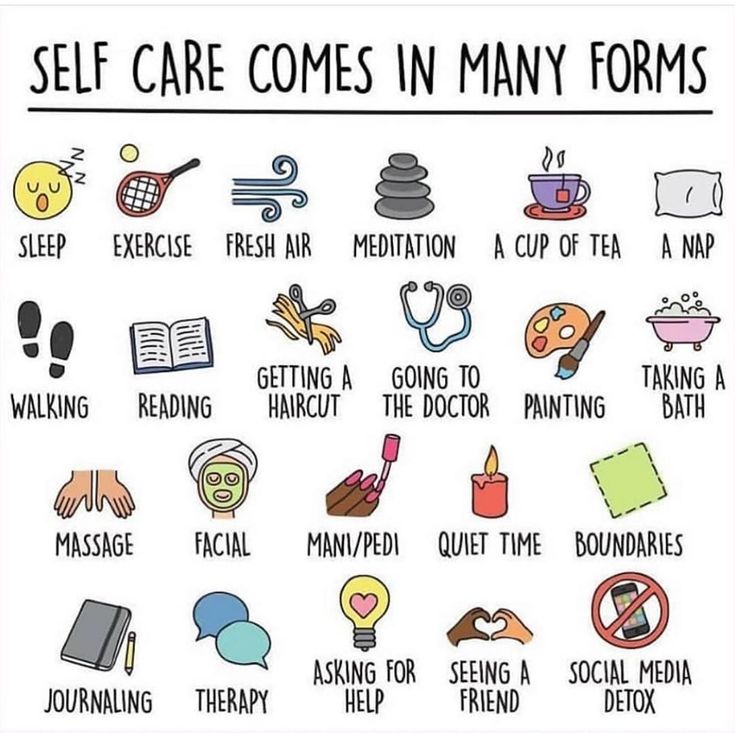 Gill Lopez says. “Anything that makes you feel cared for, even if it's you caring for yourself.”
Gill Lopez says. “Anything that makes you feel cared for, even if it's you caring for yourself.”
There are a few different categories of self-care:
- Emotional self-care, such as self-talk, weekly bubble baths, saying “no” to things that cause unnecessary stress, giving yourself permission to take a pause, or setting up a weekly coffee date with a friend
- Physical self-care, such as prioritizing sleep, adopting an exercise routine you can stick with, choosing healthy and nourishing foods over highly processed ones
- Spiritual self-care, such as attending a religious service, spending time in nature, meditating, incorporating regular acts of kindness into your day, or keeping a gratitude journal
Additionally, Gill Lopez puts self-care into two further categories: temporary and enduring.
An example of temporary self-care is going to dinner with a friend. You’ll benefit from the social connection, but it won’t last for very long after you part ways.
Enduring self-care, on the other hand, has more permanent effects. Gill Lopez says an example of this is practicing mindfulness regularly, because it leads to brain changes, she says. According to a study (one of many on this topic) published in Psychiatry Research, eight weeks of mindfulness training led to changes in gray matter concentrations in the brain areas involved with learning and memory processes, emotion regulation, self-referential processing, and perspective taking.
“You reap the benefits of mindfulness whether you're [actively] doing it or not,” Gill Lopez says.
What Counts as Self-Care and What Doesn’t
There’s no way to say exactly what counts as self-care, because everyone’s definition is their own and unique.
The underlining rule is that it's something that brings you more sustained joy in the long run, Courtney says. And though there are plenty of examples of self-care that seem to tread a fine line between a health-enhancing behavior and self-indulgence, self-care doesn’t have to be about padding your calendar with luxurious experiences or activities that cost money (though it certainly can).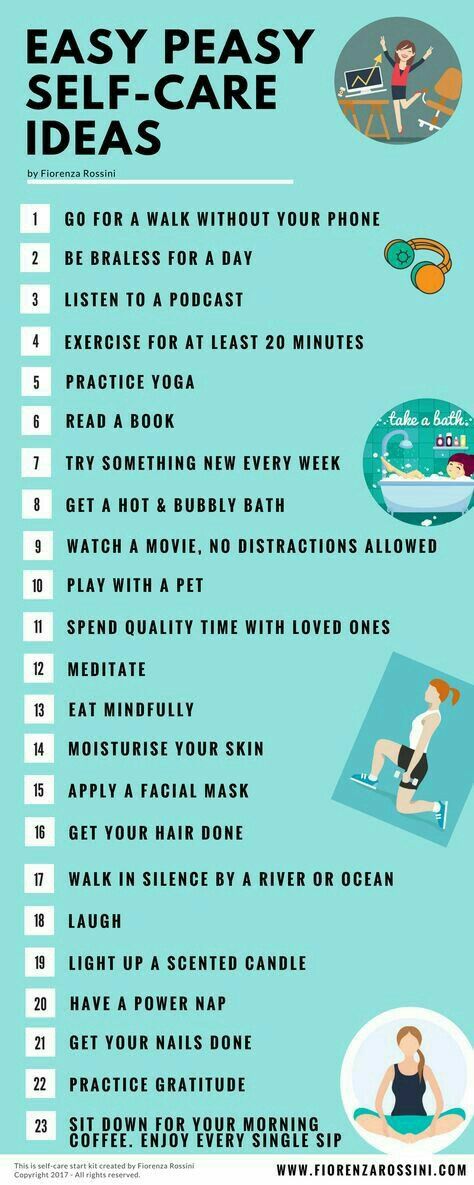
RELATED: Is Social Media Busting or Boosting Your Stress?
Consider a manicure or a massage or any other pampering activity. It might seem indulgent, but if the activity helps you de-stress and carve out time for yourself, it counts as self-care, Amsellem says. If weekly manicures or monthly spa days are beyond your means, there are plenty of other self-care practices you can adopt.
“Self-care does not have to cost anything — it’s just doing things you enjoy. And a lot of the things we enjoy or feel fulfilled from cost nothing,” Amsellem says. “Stepping outside and taking a deep breath, for example, might be the greatest act of self-care.”
Even if you can’t spend lots of time and money, Gill Lopez says you can still practice self-care several times a week by turning things you do every day into self-care practices.
Maybe you try being more mindful of your thoughts on your commute, or maybe you find ways to make daily tasks, like showering, more enjoyable. Pick a soap with a scent that you love and focus on the physical sensations of the shower. Gill Lopez says: What does your shower smell like? What does it sound like? How does the warm water feel on your skin? “For about 10 minutes in the shower, which I have to do anyway, instead of letting my monkey brain run wild, I’m right there,” she says.
Pick a soap with a scent that you love and focus on the physical sensations of the shower. Gill Lopez says: What does your shower smell like? What does it sound like? How does the warm water feel on your skin? “For about 10 minutes in the shower, which I have to do anyway, instead of letting my monkey brain run wild, I’m right there,” she says.
Daily chores like making your bed in the morning are also examples of self-care — or can be. “This is where that individuality comes into play, because for some people there is no way making a bed feels like self-care — it may just feel like a chore,” Amsellem says. But if it helps you claim your day and gives you a sense of accomplishment early on, you’ll have that with you even if the rest of the day gets derailed, Amsellem says.
The simple act of making your bed in the morning likely isn’t sufficient to account for all your self-care, she says. You may need to routinely devote time and energy to other self-care practices, she adds. “But if there are some days when you feel out of control, on those days, starting the day off doing what you wanted to do for yourself might be one of the biggest forms of self-care you engage in that day.”
“But if there are some days when you feel out of control, on those days, starting the day off doing what you wanted to do for yourself might be one of the biggest forms of self-care you engage in that day.”
And sometimes when all of our other self-care plans get thrown out of whack (you worked through your yoga class, your friend canceled your coffee date — we’ve all been there), it’s those small practices of self-care that provide just enough calm to help us get through the day and wake up in a better mood tomorrow.
RELATED: 20 Tips to Help You Build Resilience and Better Cope
The Effects: How Self-Care Benefits Your Health and Well-Being
Many common self-care practices have been linked to longevity and other positive health outcomes, says Ellen K. Baker, PhD, a psychologist based in Washington, DC. There's a lot of research, for example, showing that things like exercise, yoga, and mindfulness are supportive of mental and physical health, she says.
An article published in January 2020 in JAMA noted that longevity in the 21st century depends on abiding by healthy practices — such as exercising, not smoking, and following a healthy diet — and also embracing a positive lifestyle all around.
Paying attention to your well-being involves asking yourself big questions (such as "What brings me satisfaction?"), and then finding ways to get there, according to that report.
The following self-care practices have been well-researched and linked to a longer life:
- Exercise People who exercised between two and eight hours per week throughout their lives reduced their risk of dying by 29 to 36 percent, according to a March 2019 study published in JAMA Network Open.
- Finding Purpose According to the researchers behind a May 2019 study published in JAMA Network Open, having a strong life purpose was associated with decreased mortality rates.
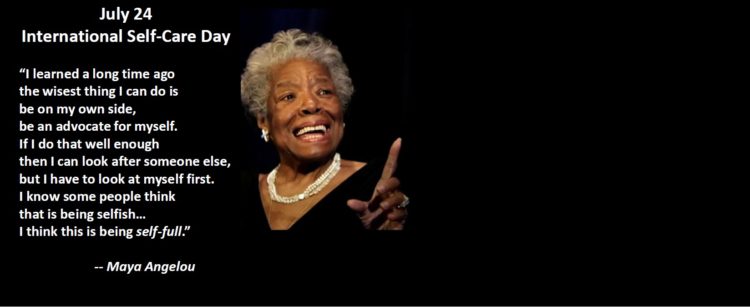
- Diet Eating a diet filled with five servings of fruits and vegetables per day was associated with a lower risk of mortality, especially from heart-related issues, according to a July 2014 study published in The BMJ.
- Sleep A study published in September 2017 in the Journal of the American Heart Association found too-little sleep (less than seven hours per night) was linked with higher mortality rates, though too-much sleep wasn’t healthy either.
- Getting Outside According to a 2019 study published in Lancet Planet Health, spending time in green space is associated with a lower mortality rate.
The clinical evidence documenting the long-term health benefits of specifically taking a self-care approach to health (over other approaches) is less robust, but it is building.
For instance, research shows that people with chronic conditions who were more likely to follow medication regimens, to be knowledgeable about how to take care of their health, and to have the skills to take care of their health (characteristics that are considered part of self-care), indeed, were more likely to score higher when it came to measures of mental and physical functioning.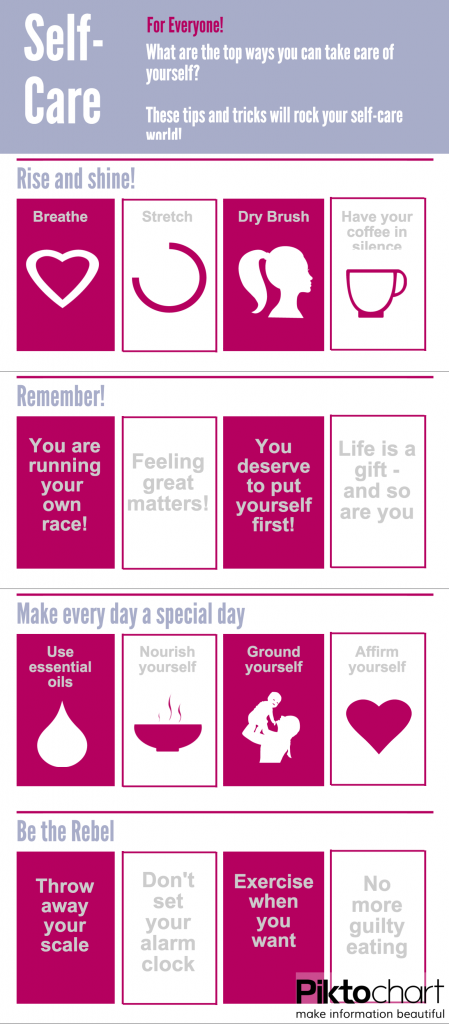
Gill Lopez has led self-care workshops for students, professionals, and community members at national conferences, in school districts, and on campus at Fairfield University. Most workshops are two to three hours, and she leads about 15 to 20 per year. She says after her workshops, participants report psychological, emotional, spiritual, and professional improvements. They say they’re more in tune with their own emotions and can more easily identify when they’re feeling anxious or unbalanced. This self-awareness helps people perform better in their jobs, enables them to be more mindful, and helps them combat burnout, she explains.
How to Start a Self-Care Routine
To get started with a self-care routine, the experts we spoke with suggest:
- Determine which activities bring you joy, replenish your energy, and restore your balance.
- Start small by choosing one behavior you’d like to incorporate into your routine in the next week.
- Build up to practicing that behavior every day for one week.
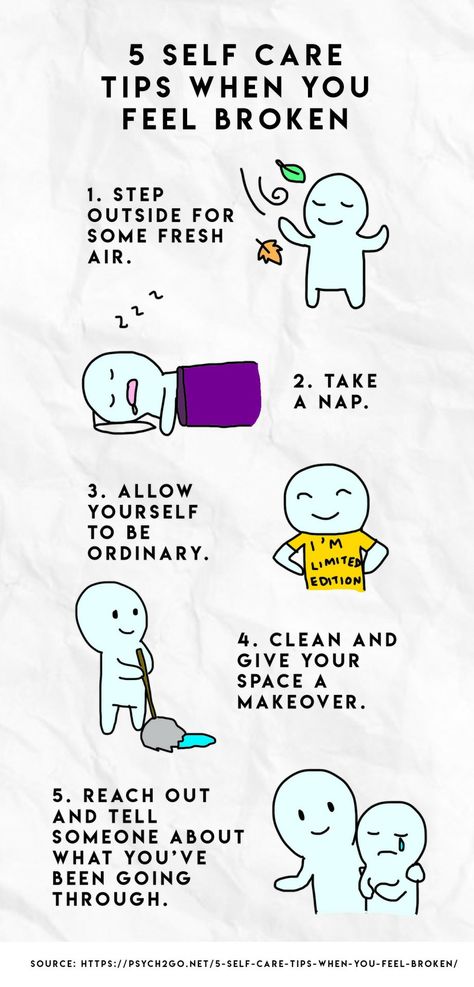
- Reflect on how you feel.
- Add in additional practices when ready.
- Get support through sharing practices from loved ones, a coach, a licensed professional (like a therapist or dietitian), or through your healthcare plan, community, or workplace.
Practicing self-care doesn’t need to be a heavy lift right out of the gate. Here are a few ideas to ease you into your self-care journey:
- Journal.
- Start each day by paying attention to your breath for five minutes and setting intentions for the day.
- Eat breakfast.
- Reflect on what you’re grateful for each night.
- Put your phone on airplane mode for a half hour each night and release yourself from the flurry of notifications.
- Call a friend just to say hello.
- Take up a relaxing hobby.
- Pick a bedtime and stick to it.
Note, if you read this and feel a sense of demoralization or sadness from challenges mounting or establishing a self-care practice, its best to get help and support.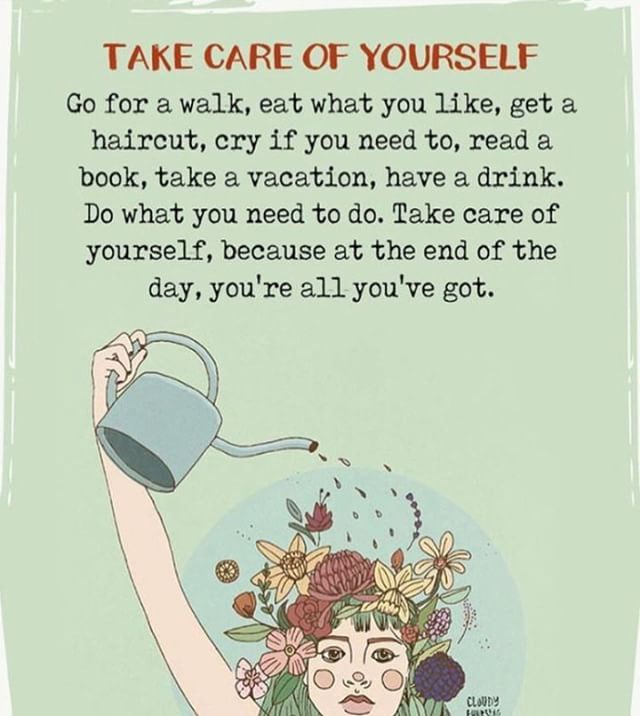 There may be barriers to caring for yourself from past trauma, mental health issues, or family situations that may be making it more challenging to get started. Seek support from trusted counselors and behavioral health providers (like therapists), a trusted primary care doctor, or a close friend.
There may be barriers to caring for yourself from past trauma, mental health issues, or family situations that may be making it more challenging to get started. Seek support from trusted counselors and behavioral health providers (like therapists), a trusted primary care doctor, or a close friend.
The bottom line: Self-care can have a positive effect on your health and outlook, but it requires a commitment or intention to invest in your well-being. “Self-care is a choice that each individual can make to proactively take care of their well-being,” Courtney says. And it tends to be well worth the time and any money you spend. “We need to remove the stigma that being kind to and taking care of ourselves is self-indulgent or selfish,” Courtney says.
Learn More About How to Start a Self-Care Routine
Editorial Sources and Fact-Checking
- Self-Care. Google Trends.
- What Do We Mean by Self-Care? World Health Organization.
- Godfrey CM, Harrison MB, Lysaght R, et al.
 The Experience of Self-Care: A Systematic Review. JBI Library of Systematic Reviews. 2010.
The Experience of Self-Care: A Systematic Review. JBI Library of Systematic Reviews. 2010. - Mills J, Wand T, Fraser JA. Exploring the Meaning and Practice of Self-Care Among Palliative Care Nurses and Doctors: A Qualitative Study. BMC Palliative Care. April 18, 2018.
- Holzel BK, Carmody J, Vangel M, et al. Mindfulness Practice Leads to Increases in Regional Brain Gray Matter Density. Psychiatry Research. January 30, 2012.
- Pizza PA. A Prescription for Longevity in the 21st Century: Renewing Purpose, Building and Sustaining Social Engagement, and Embracing a Positive Lifestyle. JAMA. January 9, 2020.
- Saint-Maurice PF, Coughlan D, Kelly SP, et al. Association of Leisure-Time Physical Activity Across the Adult Life Course With All-Cause and Cause-Specific Mortality. JAMA Network Open. March 8, 2019.
- Alimujiang A, Wiensch A, Boss J, et al. Association Between Life Purpose and Mortality Among US Adults Older Than 50 Years.
 JAMA Network Open. May 24, 2019.
JAMA Network Open. May 24, 2019. - Wang X, Ouyang Y, Liu J, et al. Fruit and Vegetable Consumption and Mortality from All Causes, Cardiovascular Disease, and Cancer: Systematic Review and Dose-Response Meta-Analysis of Prospective Cohort Studies. The BMJ. July 29, 2014.
- Yin J, Jin X, Shan Z, et al. Relationship of Sleep Duration With All-Cause Mortality and Cardiovascular Events: A Systematic Review and Dose-Response Meta-Analysis of Prospective Cohort Studies. Journal of the American Heart Association. September 2017.
- Rojas-Rueda D, Nieuwenhuijsen MJ, Gascon M, et al. Green Spaces and Mortality: A Systematic Review and Meta-Analysis of Cohort Studies. Lancet Planet Health. November 2019.
- What Is Self-Care? International Self-Care Foundation.
- Narasimhan M, Allotey P, Hardon A. Self care interventions to advance health and wellbeing: a conceptual framework to inform normative guidance.
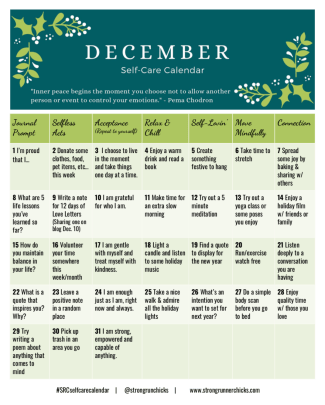 The BMJ. April 1, 2019.
The BMJ. April 1, 2019. - Mosen DM, Schmittdiel J, Hibbard J, et al. Is Patient Activation Associated With Outcomes of Care for Adults With Chronic Conditions? The Journal of Ambulatory Care Management. January 2007.
Show Less
>","isInGrid":false}-->
By subscribing you agree to the Terms of Use and Privacy Policy.
What prevents us from taking care of ourselves
23,243
Anti-stress PSYECO Listen to your body
“All these recommendations seem so simple,” writes 37-year-old Nadezhda, one of the readers of Psychologies. - Stretch before getting out of bed, breathe properly, prepare yourself a bath and arrange a meditation session in it. But for me it is as unrealistic as climbing Everest. I guess deep down I just don't believe that all this can change my life. For some reason, some people are able to learn to do well for themselves, while others are doomed to read advice, not finding the strength to apply it.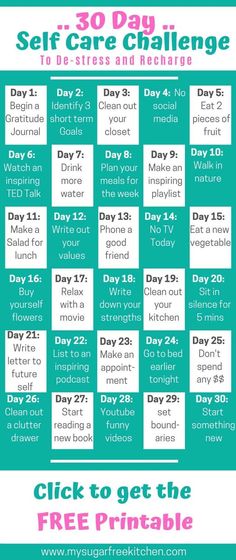
Why, realizing that a caring, careful attitude to oneself is the basis of physical and emotional well-being, why do many of us openly neglect our body, forget about it, or even openly act to its detriment?
We “listen to mom and dad”
In English there is a concept of routine - a series of regular repetitive actions, it is used in relation to both daily hygiene and rituals of applying cosmetics (beauty routine). The Russian word “routine” is related to it - only in our language it has a clearly negative connotation, as a reflection of something tedious, pedantic, boring.
“In practice, self-care looks like a certain learned sequence of actions, a habit to perform them,” says Olga Dolgopolova, a gestalt therapist. This skill is instilled in childhood. For those whose dad did exercises in the morning, and mom applied cream every evening in front of the mirror, self-care will more likely seem like a natural thing. Others will have to master this science anew.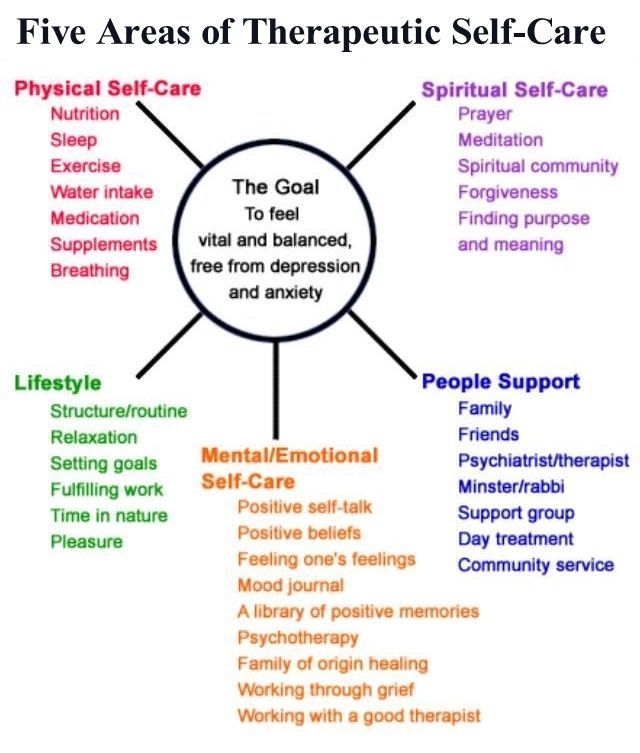 ”
”
If the example of parents gives us a model of behavior, then their view of ourselves allows us to develop a benevolent attitude towards our own body.
“Self-perception is formed through the words, gestures and attitudes learned in childhood,” explains French psychotherapist Michel Freud. “If this experience has been satisfactory, we will be able to create a healthy body image and a positive self-image.
In other cases, the relationship to the body will be more complex and may manifest itself in many ways: poor nutrition, overexertion, unhealthy lifestyle, etc. To these inputs are added the positive or negative ideas brought by our education. All this determines our behavior.
Not daring to spend time on ourselves, feeling guilty, considering being a waste of time, associating rest with laziness - such beliefs, conscious or not, make us deaf to our own needs, prevent us from treating ourselves well.
"I'm not worth it"
This is especially true of women: "I'm going to have to take this time/money away from my family/child.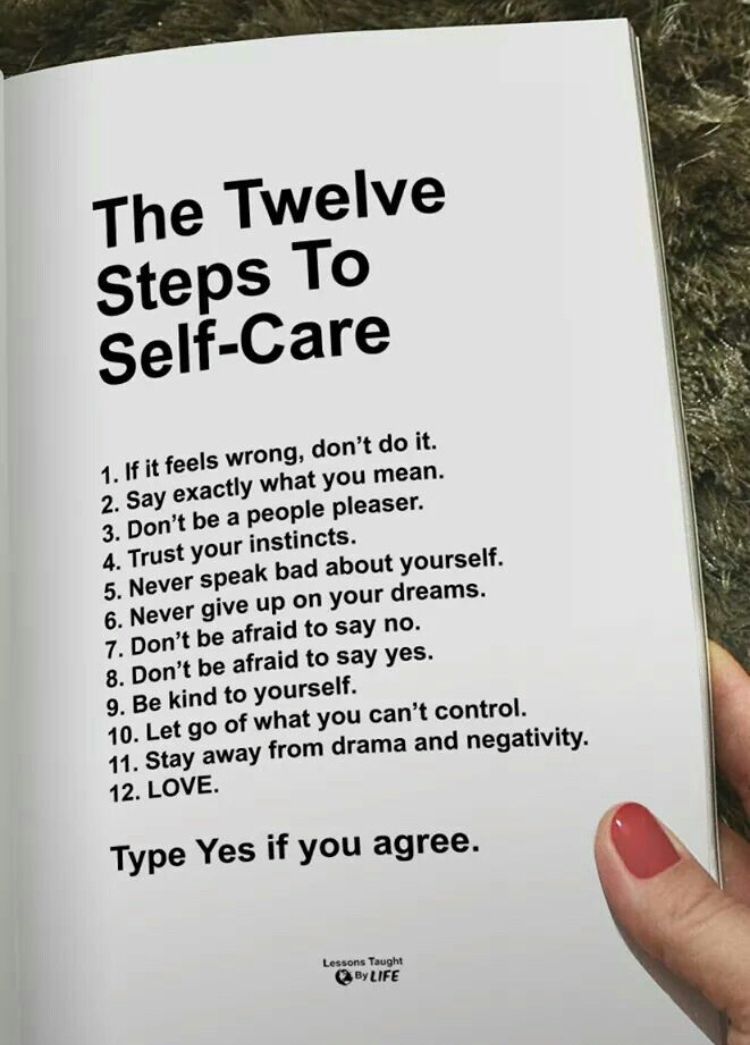 " Often we not only (rightly) equate self-care with pleasure, but (wrongly) see selfishness in this activity.
" Often we not only (rightly) equate self-care with pleasure, but (wrongly) see selfishness in this activity.
“It will be easier for such a woman to take care of others than of herself — this gives her greater inner satisfaction,” states Olga Dolgopolova. “Most likely, so did her mother or grandmother. And she will pass this baton to the next generation - her child, whom she cares so much about.
But if she learns to recognize and satisfy her needs, to fulfill her desires, it will be much easier for her to teach this to her children - and thereby help them become happy. A woman has a choice: to continue this form of suffering from dissatisfaction with herself and life, or stop, pay attention to her needs and needs.
Taking care of yourself does not mean giving priority only to your own interests - contrary to the interests of other people. “A person needs others in order to fully feel alive, existing,” says French psychiatrist and psychotherapist Robert Neuburger.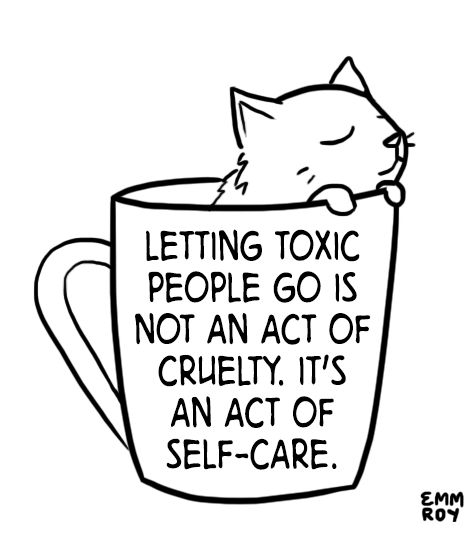 “That is why we often pay attention to ourselves not for our own sake, but depending on the way other people look at us. To keep your belonging to them.
“That is why we often pay attention to ourselves not for our own sake, but depending on the way other people look at us. To keep your belonging to them.
If a person feels unimportant, if he doubts his worth and does not find a place for himself, self-care loses all meaning.
“After the divorce, I felt terrible - homely, uninteresting,” recalls 44-year-old Marina. - At that time, taking care of myself for me meant at least reaching the hairdresser so that my 12-year-old daughter, against all odds, had a positive example before her eyes. And it was for her then that I painted my lips.
“I take care of myself”
“The generally accepted expression “take care of yourself” in its true meaning implies a caring, understanding attitude towards yourself,” says Olga Dolgopolova. - But we often replace it with another - "take care of yourself", that is, rationally, by an effort of will, build yourself a kind of "front part", which often hides not caring for yourself.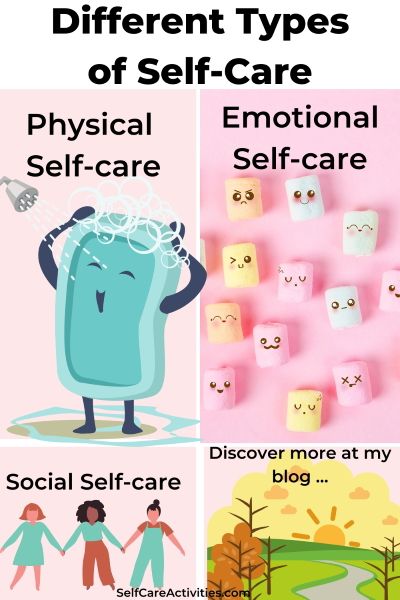 When someone says "I have to take care of myself", there is nothing about "I want" in it.
When someone says "I have to take care of myself", there is nothing about "I want" in it.
“Masks, massages, yoga — when do all these yogas work?! - in the words of 36-year-old Evelina, condemnation and envy sound at the same time. - I run a recruiting agency, a team of 20 people, I have two children and really do not have time to cherish myself!
When my girlfriends were pampering themselves, as women's magazines prescribe, I worked hard on my diploma in the USA. Needless to say, aromatherapy foam baths were far from my number one priority! Maybe today I would like to give myself a rest, learn to relax and care for my body, but life with its habits has already developed.
Almost everyone has excuses to openly neglect themselves. But the commonplace “I don’t have time” most often hides other, deeply rooted beliefs: “I have no right to please myself,” “I don’t deserve such expenses,” “All this will not make me happier.” And each of them contains aggression directed at oneself, a depressive state, or all the same unconscious messages that are passed down from generation to generation.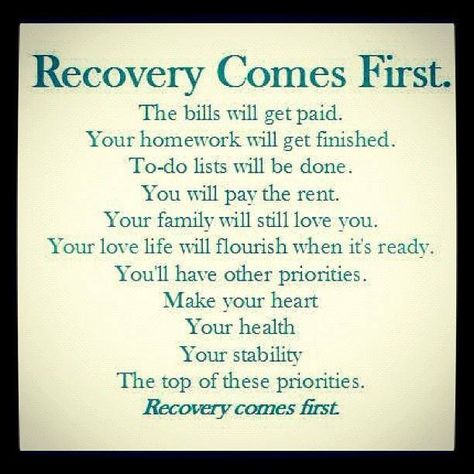
29-year-old Laura appreciated the extent of her inner tension on the day she agreed to be massaged by her vacation friend. “We sunbathed by the pool: the sun, the scents of flowers, the gentle breeze, and two minutes later I burst into tears quite unexpectedly! I don’t know how to explain it, but all this was somehow too much for me - too tender, too affectionate, this has never happened in my life!
Respect your body
To learn how to truly care for it, you should first start thinking about it, advises the famous French psychoanalyst Jean-David Nazio.
“We have two possibilities to exist in our own body,” explains Jean-David Nazio. - Either forgetting about it (I identify with it, I think that I am my body), or thinking about it (I consider my body to be my most valuable asset, I say to myself: I have a body). In other words, perceiving ourselves and our body as something unified, we are not able to split in two in order to begin to treat it as an object of care and careful care.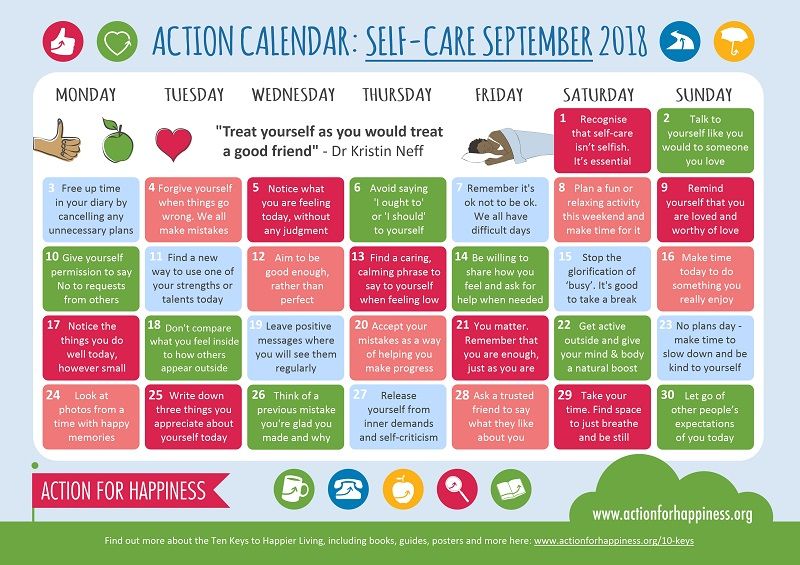 On the contrary, if we are aware that we have the body as a subject that has the power to prolong or terminate our life, we treat it with all the respect that it rightfully deserves.
On the contrary, if we are aware that we have the body as a subject that has the power to prolong or terminate our life, we treat it with all the respect that it rightfully deserves.
We are afraid to upset the balance
Such a reaction is not surprising: for a person who surrounds himself with an emotionally rigid shell, tenderness, signs of attention, affectionate touches do not just seem strange - they threaten his inner balance. Afraid of incurring the “judgment” of relatives behind us or undermining the defense strategies that have helped us build our identity and life, we “button up” to continue treating ourselves the same way.
“Caring for oneself can be painful or even impossible if one unconsciously perceives it as a kind of violation,” says Michel Freud. - As an opportunity to do what your parents did not allow: to please yourself, to spend time on yourself, to listen to yourself. Taking this step is not easy, it requires overcoming guilt in order to move beyond the repetitive pattern.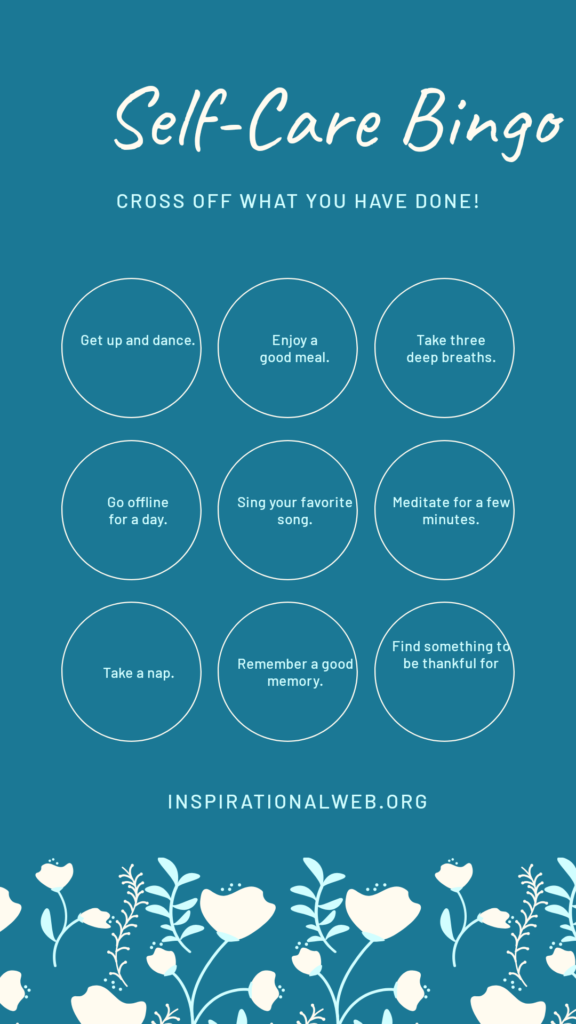
“Of course, it is much easier for those who accept and love themselves to take sincere care of themselves,” concludes Olga Dolgopolova. “But the opposite is also true: by gradually mastering the simple gestures that make up the science of caring for ourselves, we more easily agree to accept ourselves as we are and begin to treat ourselves much better. Only this path will allow us not to collapse in the endless use of ourselves, but to gently restore the connection between us and our body, and therefore ourselves.”
5 keys to change
Only by moving forward, step by step, can you learn to truly take care of yourself. Several therapeutic techniques offered by the Gestalt therapist Olga Dolgopolova.
Don't go overboard. Write on a piece of paper three phrases, starting with the words “I want”, draw a line and write “I must” three times as well. Think about how the first phrases differ from the second and how "should" could be transformed into "want".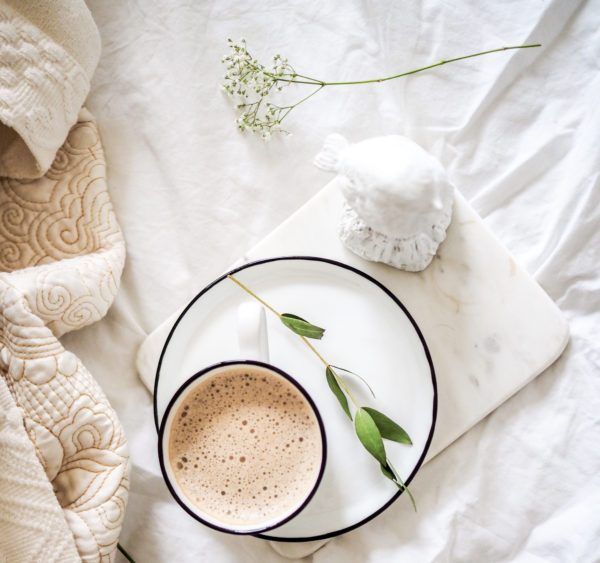 Perhaps some of your nutrition, figure, and beauty goals are too burdensome for you and that is why they are difficult to achieve. Torturing yourself also means "to be too demanding of yourself."
Perhaps some of your nutrition, figure, and beauty goals are too burdensome for you and that is why they are difficult to achieve. Torturing yourself also means "to be too demanding of yourself."
Be aware of your movements. While making the simplest gestures - dressing, washing, applying cream - deliberately slow down the rhythm and pay attention to what sensations these movements give you. By acting mechanically, we forget about the body and increasingly tend to neglect it.
Make time for pleasure. A day a week or an hour a day in your schedule is worth “booking” for yourself. Use this time only according to your own taste - in active action or idleness. A cup of tea, an hour of reading under a cozy blanket, or a sweet siesta - while devoting time to yourself, continue to note your emotions and thoughts, including those that are not entirely pleasant: feelings of guilt, tension, inability to focus on pleasure.
Find a company. You can create your own well-being society, find like-minded people. Running, yoga, fitness, sauna, swimming pool or dancing - doing any bodily practices together or in a group is much more effective, because it gives a constant feeling of support. And, by the way, it helps to maintain the regularity of classes.
You can create your own well-being society, find like-minded people. Running, yoga, fitness, sauna, swimming pool or dancing - doing any bodily practices together or in a group is much more effective, because it gives a constant feeling of support. And, by the way, it helps to maintain the regularity of classes.
Praise yourself . But not for the “right things” for the benefit of others, but for the manifestation of care, for any sign of attention that you give yourself. Being good to ourselves is not easy for most of us, and therefore each of these small actions becomes a huge step towards inner freedom.
Photo source: Getty Images
New on the site
“I'm in demand as an intelligent conversationalist, but not as a friend. Why is this happening?"
You are a victim of the "dark forest syndrome": 6 symptoms
Self-harm: why people hurt themselves physically and how to help them for my parents' relationship, but they won't let me see a psychologist”
“My man is leaving for his ex. She needs his money."0003
She needs his money."0003
"Married and happy - am I the only one?": how to build and maintain strong relationships
How to deal with strong emotions: 2 tips - learn to help yourself
7+ ways to take care of yourself at work and at home
Self-development
7+ ways to take care of yourself at work and at home
May 14, 2020 9 371 views
Anton Bakharev
Self-care is one of the key components of overall performance. Taking care of yourself is no longer a luxury - it's now part of the job. So what is self-care and how to practice it? We find out together with the book “HBR Guide. Life balance.
First, let's expand the definition of self-care. Self-care is based on your relationship with your "I". In other words, you feel and understand what you need to be creative, effective, and true self. That is why, instead of narrowly defining self-care as purely physical health (although this is also an important component), you need to pay attention to other indicators: taking care of your mind, emotions, relationships, environment, time and resources.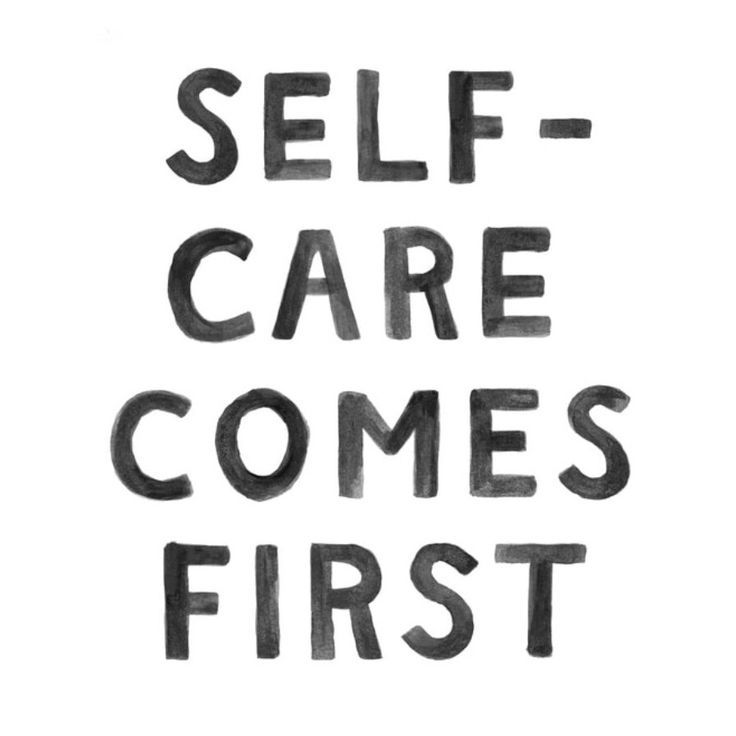
HBR Guide. Life balance
Drop the word “need”
Taking care of yourself can feel intimidating or out of reach. But the goal is not to add something else to an already full plate or create an occasion for self-flagellation.
For example, you might get annoyed when other people offer to take better care of yourself, especially if they don't seem to realize how busy you are already.
Self-care does not spring from or respond to judgment (both are forms of self-harm). Rather, self-care stems from the intention to stay in touch with myself and my purpose in life: who and what can support and benefit the positive contribution I hope to make?
Add self-care to your daily activities. Instead of taking care of yourself "outside of work", it's important to naturally "weave" it into your working day.
Taking care of yourself is a very personal matter.
Therefore, take the advice not as an exhaustive list, but as ideas aimed at setting you on the right path.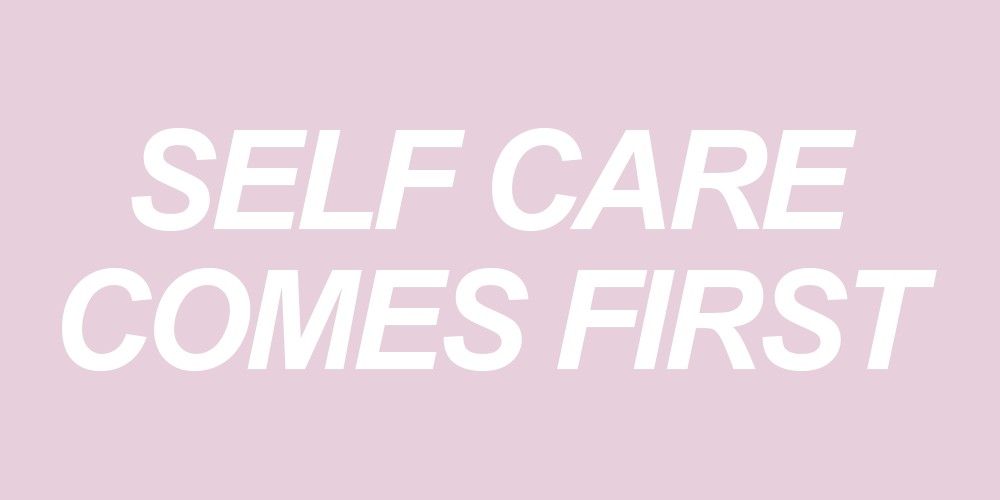
Take a break
Our biggest critic is often ourselves. When you're cringing under the weight of responsibility or a perfectionist awakens in you, ask yourself: "What would I say to a colleague or friend in a similar situation?"
Research by Harvard Business School professor Amy Edmondson has shown that the benefits of working and learning in groups require both responsibility and psychological safety. By holding back your inner critic, you will create the right psychological conditions and move through periods of reflection or self-doubt more quickly.
Appreciate time, money and resources
During the work day, colleagues and other people often ask us to give them time or other resources, diverting them from more important things. That's why it's important to set aside 15 minutes each morning to write down the three things you want to do that day. Before reflexively and automatically answering with consent to the next request that has come to your address, weigh your priorities.
Take a lap of honor
What did you do last week? Many of us don’t even remember it because after finishing a job or going through a crisis, we immediately moved on to the next stage. Take your time - take a break for yourself and your team to look back at the past month or quarter and name or write down everything that went well or was especially pleasant. Such a report will help you to keep your enthusiasm and remember the most valuable contributions and actions.
Surround yourself with good people
Healthy relationships and support are an important part of taking care of yourself. Pay attention to who contributes to the multiplication of your energy, and who depletes it. Limit communication with "energy vampires". Invest in those who inspire and support you and who understand what healthy interaction is. The same applies to your relationships outside of work. Do not allow the latter to delete the most significant people from your life.




